The Power of Regret reveals that regrets are a universal and healthy part of being human. And understanding how regret works can help us make smarter decisions, perform better at work and school, and bring greater meaning to our lives.
This book lays out a dynamic new way of thinking about regret and frames his ideas in ways that are clear, accessible, and pragmatic.
Packed with true stories of people’s regrets as well as practical takeaways for reimagining regret as a positive force, The Power of Regret shows how we can live richer, more engaged lives.
Scroll down and read 30 quotes from The Power of Regret by Daniel H. Pink.
Get The Book: The Power of Regret by Daniel H. Pink is available now on Amazon.
Quotes from The Power of Regret by Daniel H. Pink
-
Regret is not dangerous or abnormal, a deviation from the steady path to happiness. It is healthy and universal, an integral part of being human.
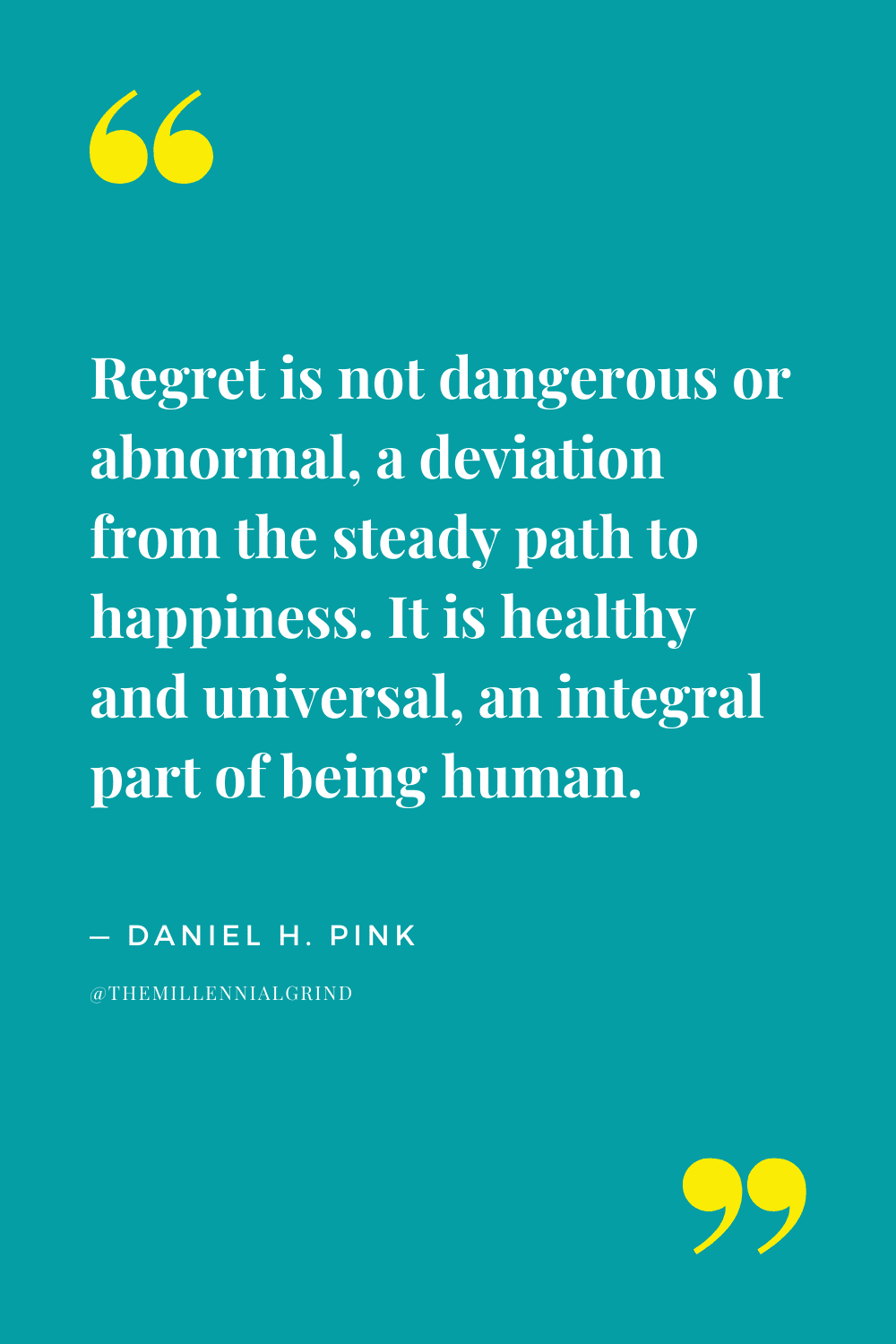
-
Too much negative emotion, of course, is debilitating. But too little is also destructive.
-
Regret makes us human. Regret makes us better.
-
Regret is better understood less as a thing and more as a process.
-
Regret doesn’t just make us human. It also makes us better.
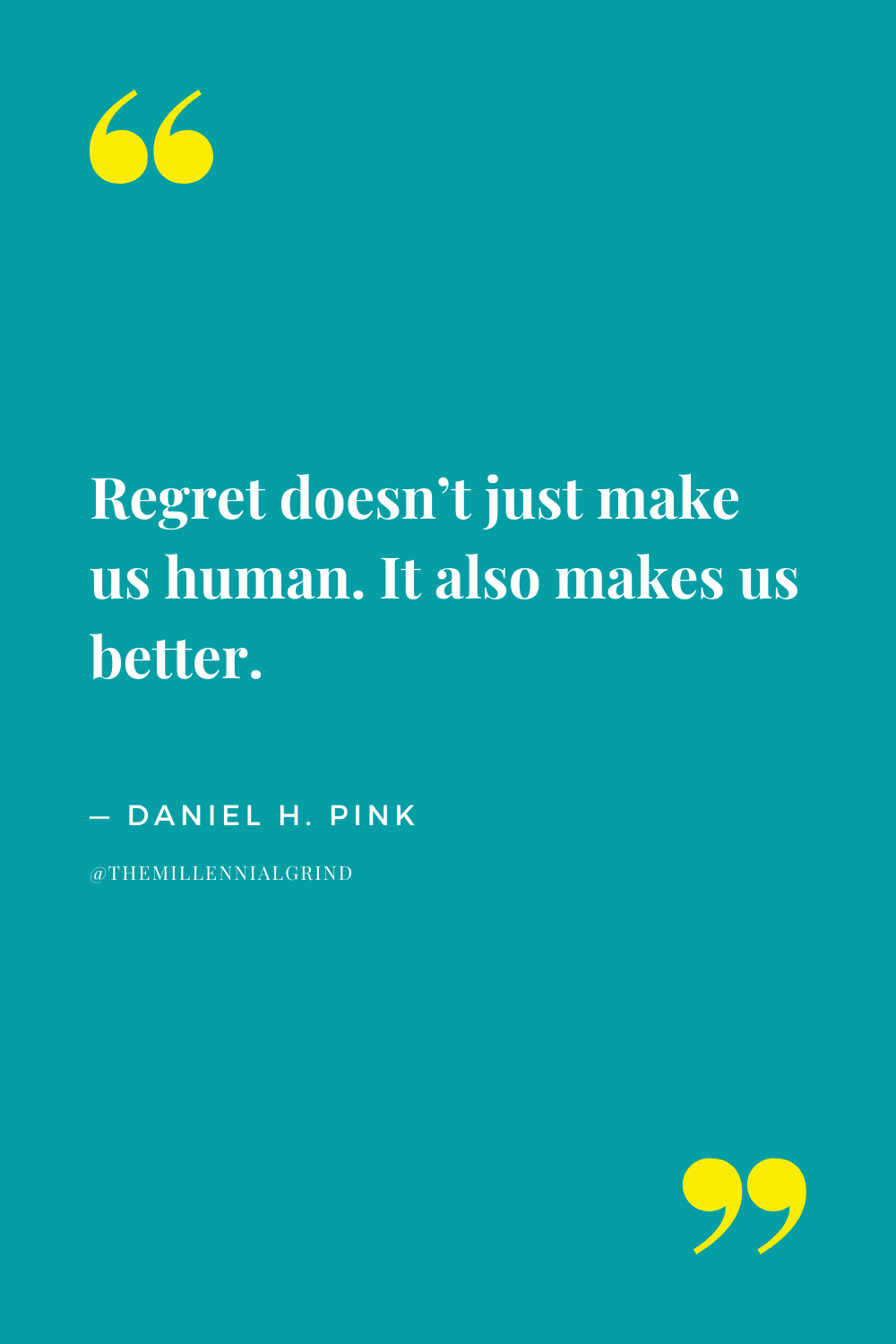
-
By making us feel worse today, regret helps us do better tomorrow.
-
Our cognitive apparatus is designed, at least in part, to sustain us in the long term rather than balm us in the near term. We need the ability to regret our poor decisions—to feel bad about them—precisely so we can improve those decisions in the future.
-
When feeling is for thinking, and thinking is for doing, regret is for making us better.
-
Foundation regrets arise from our failures of foresight and conscientiousness.
- When we handle it properly, regret can make us better. Understanding its effects hones our decisions, boosts our performance, and bestows a deeper sense of meaning.
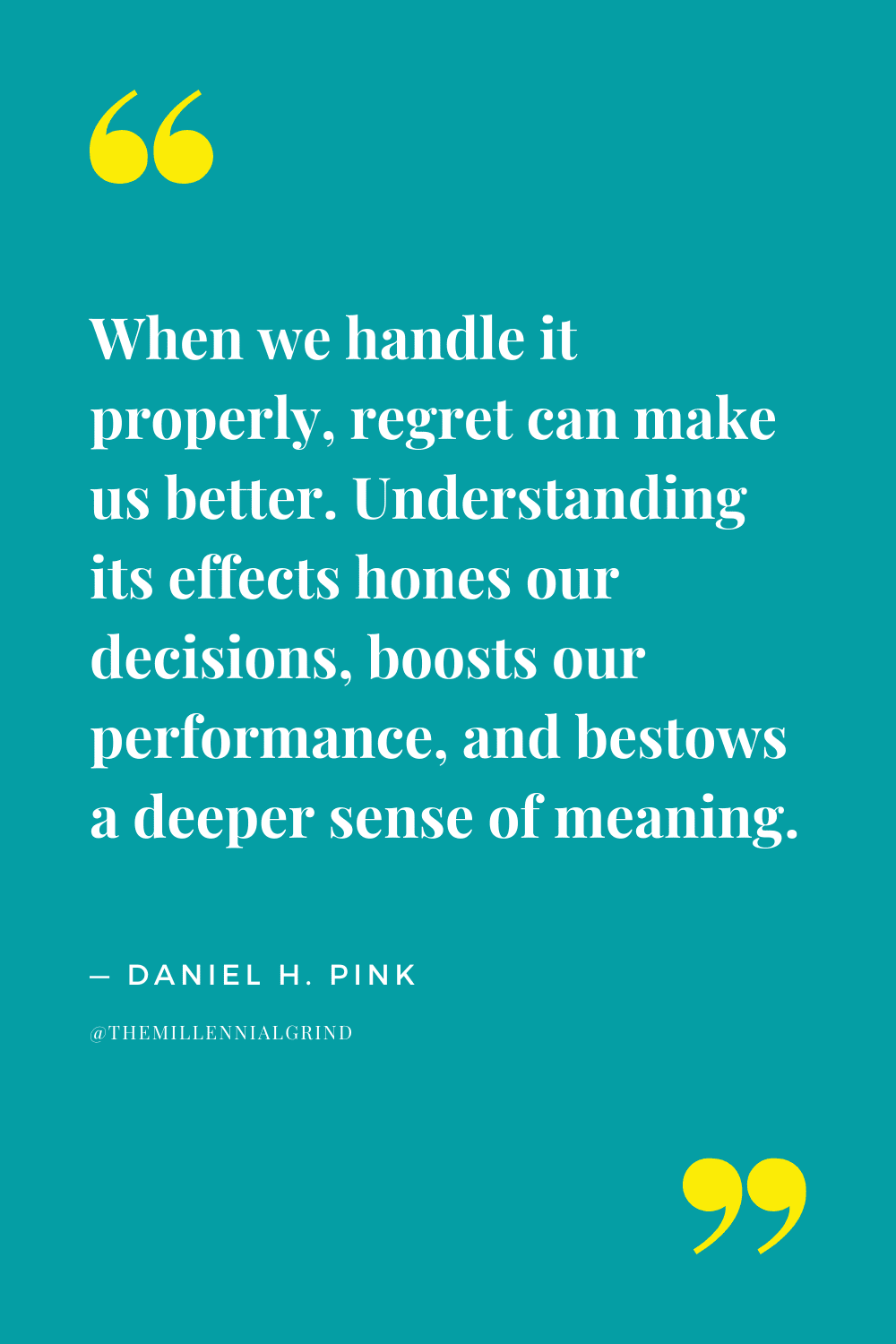
-
Foundation regrets sound like this: If only I’d done the work.
-
Boldness regrets sound like this: If only I’d taken that risk.
-
With boldness regrets, we choose to play it safe.
-
Moral regrets sound like this: If only I’d done the right thing.
- The lesson of closed doors is to do better next time. The lesson of open doors is to do something now.
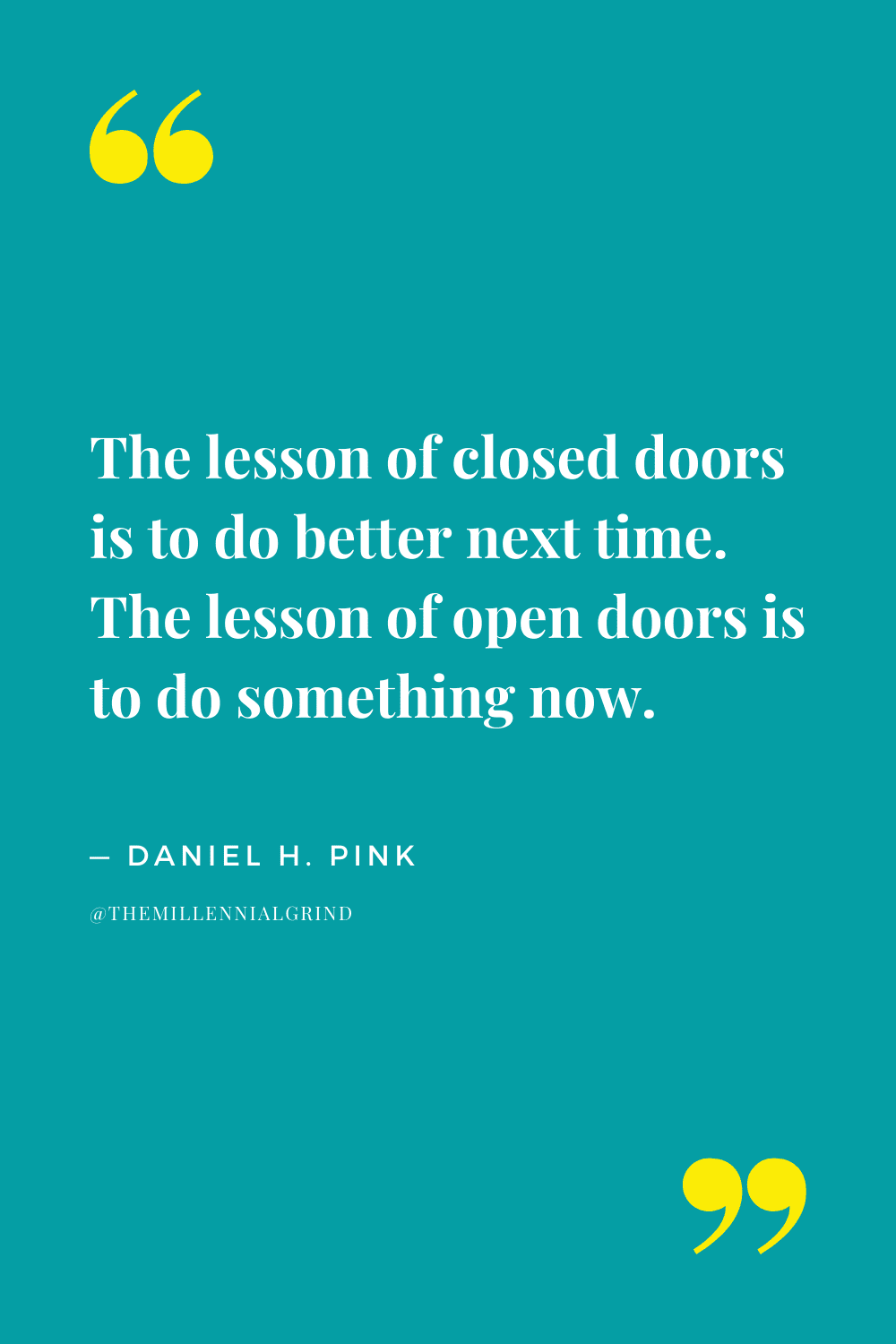
-
Connection regrets are the largest category in the deep structure of human regret. They arise from relationships that have come undone or that remain incomplete.
-
Connection regrets sound like this: If only I’d reached out.
-
A solid foundation. A little boldness. Basic morality. Meaningful connections. The negative emotion of regret reveals the positive path for living.
-
A life of obligation and no opportunity is crimped. A life of opportunity and no obligation is hollow. A life that fuses opportunity and obligation is true.
-
We regret foregone opportunities more often than unfulfilled obligations.
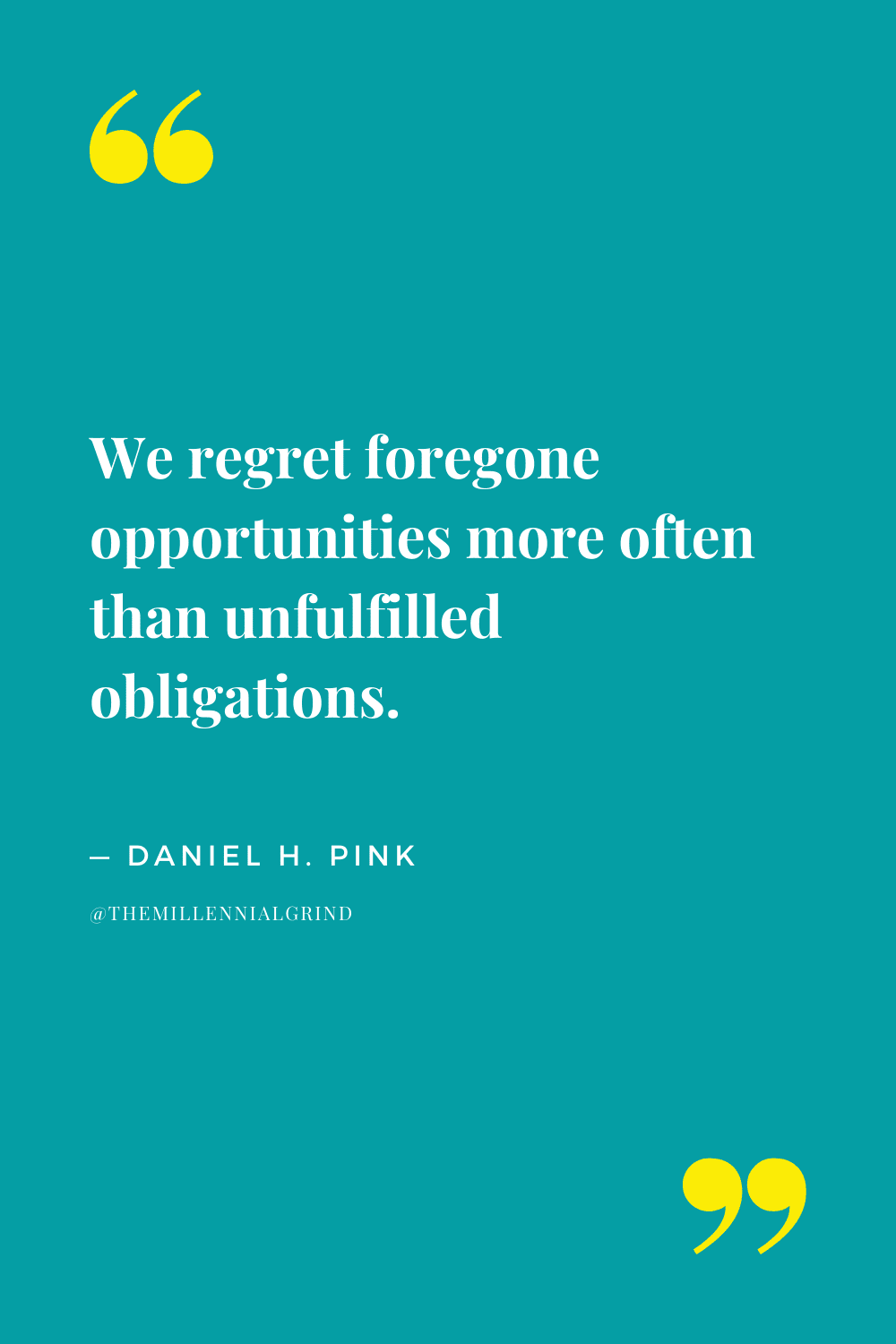
-
If we look backward with the specific intent of moving forward, we can convert our regrets into fuel for progress. They can propel us toward smarter choices, higher performance, and greater meaning.
-
The sequence of self-disclosure, self-compassion, and self-distancing offers a simple yet systematic way to transform regret into a powerful force for stability, achievement, and purpose.
-
Don’t just relish the goal you’ve achieved. Review the steps that got you there. Spend less time celebrating the destination and more time contemplating the journey.
-
If we think about regret like this—looking backward to move forward, seizing what we can control and putting aside what we cannot, crafting our own redemption stories—it can be liberating.
- If we know what we truly regret, we know what we truly value. Regret—that maddening, perplexing, and undeniably real emotion—points the way to a life well lived.
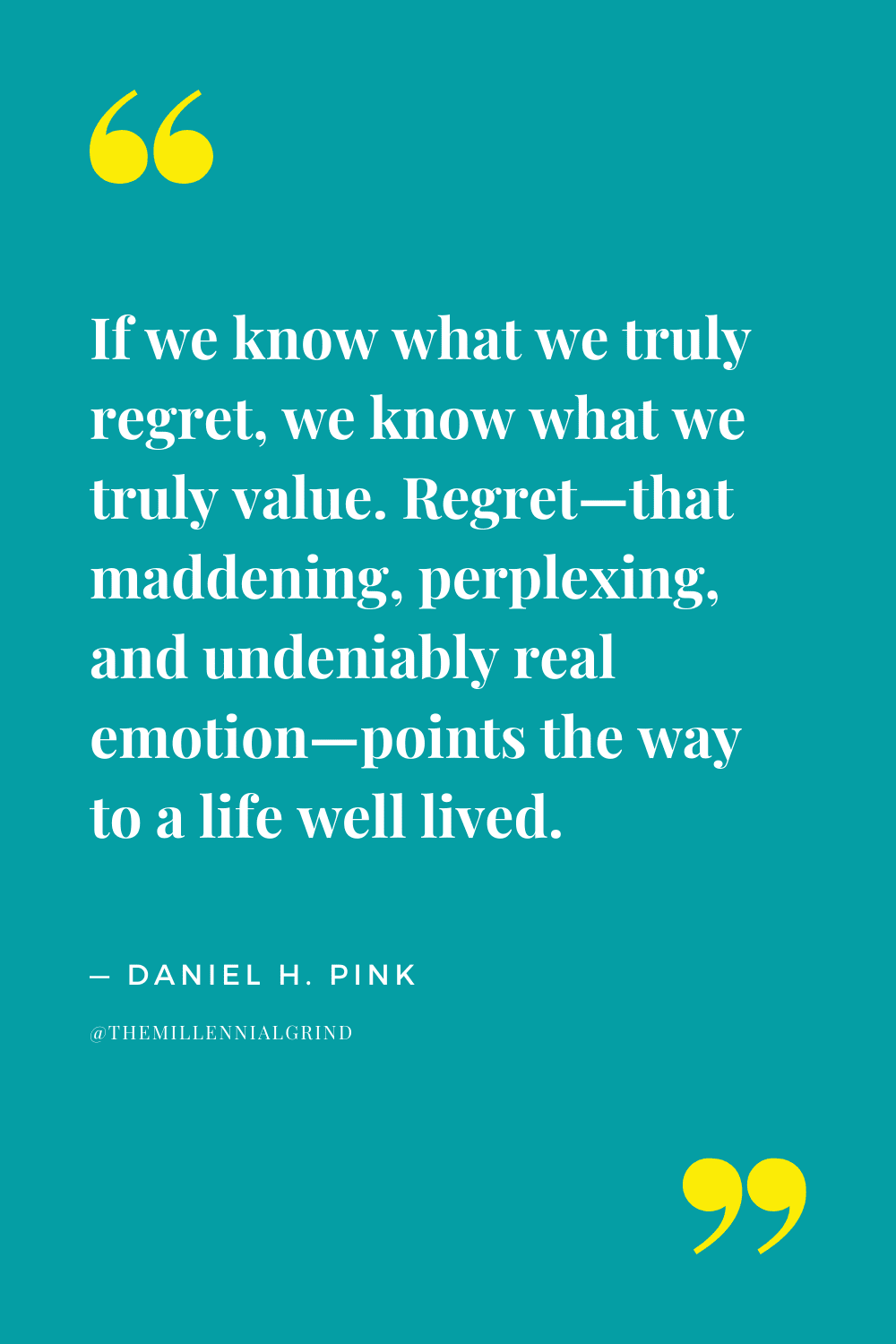
-
Our very ability to experience regret depends on our imagination’s capacity to travel backward in time, rewrite events, and fashion a happier ending than in the original draft.
-
Our capacity to respond to regret, to mobilize it for good, depends on our narrative skills—disclosing the tale, analyzing its components, and crafting and recrafting the next chapter.
-
Regret offers us the ultimate redemption narrative. It is as powerful and affirming as any positive emotion.
-
Regret depends on storytelling. And that raises a question: In these stories, are we the creator or the character, the playwright or the performer?
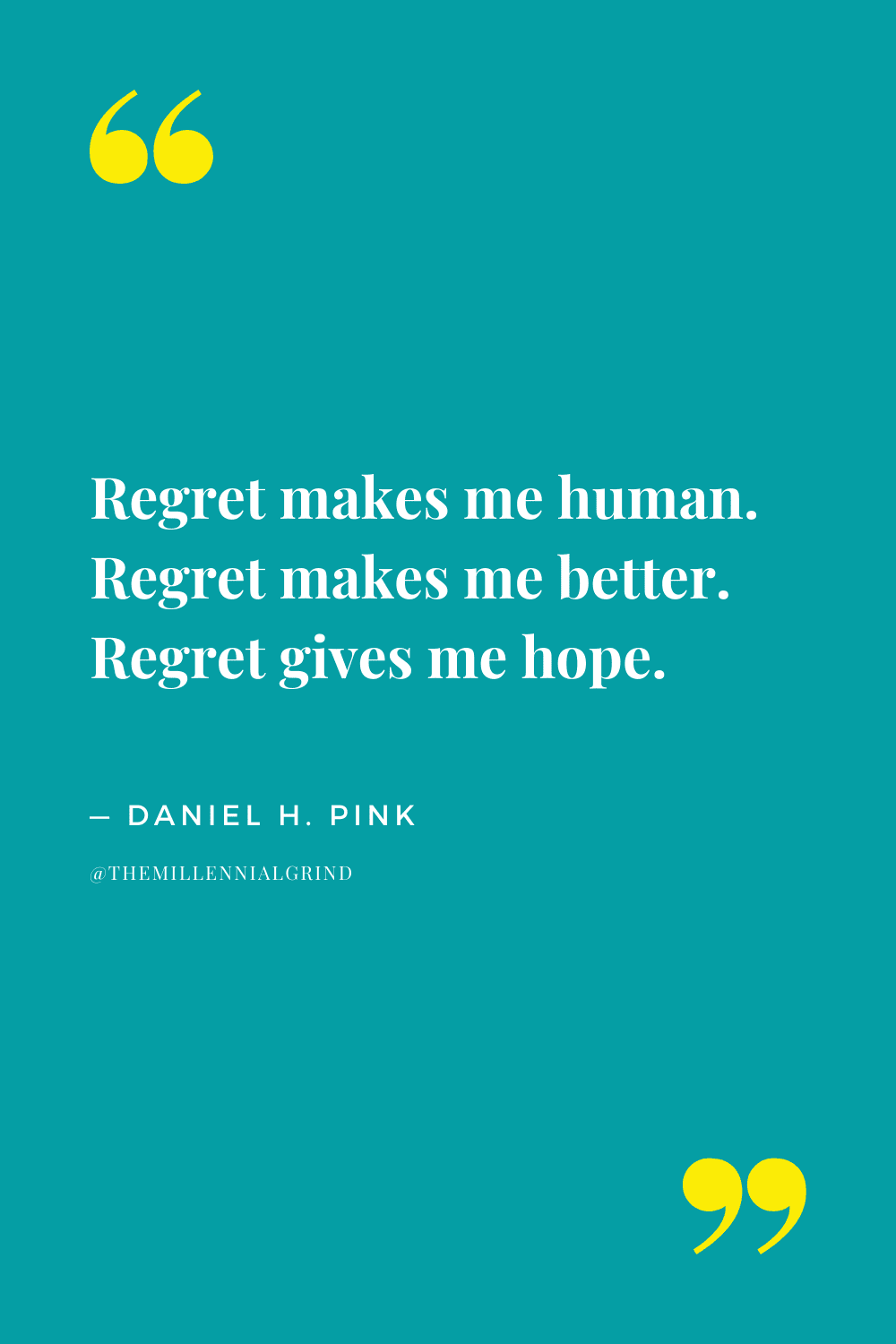
-
Regret makes me human. Regret makes me better. Regret gives me hope.
READ NEXT: 30 Best Quotes from Hero on a Mission by Donald Miller